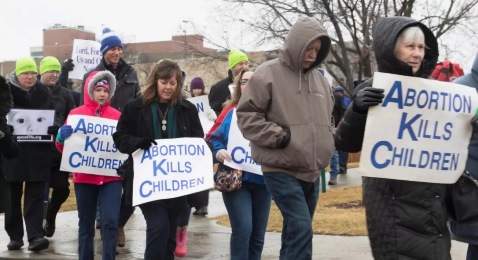Gov. Laura Kelly today proposed a new way to pay for Medicaid expansion in Kansas – with legalizing medical marijuana.
Some of the previous discussion on the issue centered on how to pay for the additional Medicaid health insurance for 165,000 Kansas residents.
Kansas is one of only three states without legalized medical marijuana and one of only 12 that have failed to expand Medicaid, according to the governor. Medical marijuana could raise up to $50 million a year for the state.
“After nearly a year of challenges brought on by COVID-19, we need to use every tool at our disposal to protect the health of our workforce and our economy,” Gov. Kelly said. “Getting 165,000 Kansans health care, injecting billions of dollars and thousands of jobs into our local economies, and protecting our rural hospitals will be critical to our recovery from the pandemic. By combining broadly popular, commonsense medical marijuana policy with our efforts to expand Medicaid, the revenue from the bill will pay for expansion.”
The Medicaid expansion bill includes many of the same provisions as last year, except these changes:
• The re-insurance program has been removed.
• The Medicaid Expansion Surcharge paid by Kansas hospitals to offset the state general fund costs of expanding Medicaid has been removed.
• In place of these two programs, a proposed medical marijuana bill has been inserted.
• This bill is modeled after Ohio’s framework and similar to the bill that has been proposed by House Republicans.
• The fiscal note of this portion of the bill should more than offset the state general fund costs of Medicaid Expansion.
“Our economic recovery depends heavily on our ability to attract and retain businesses throughout the state,” Lt. Gov. David Toland said. “Kansas has no business giving companies even one reason to look elsewhere — and I can say, unequivocally, that the availability of healthcare and well-being of all Kansans matters a great deal to companies considering places to locate and grow.”
Under the proposed legislation, Medicaid would be expanded to the full 138% federal poverty line at 90% to 10% match from the federal government. The bill requires the Kansas secretary of health and environment to collect information from applicants regarding their employment history through the Medicaid application and refer unemployed or underemployed individuals to the Department of Commerce or Department of Children and Families to assist with locating job opportunities through work referral programs.
Individuals would be required to pay a premium not to exceed $25 per person or $100 per family, with a provision to grant exceptions based on hardship. Premiums that go more than 60 days unpaid are referred to the established debt setoff program through the Department of Revenue for collection.
“Making health care available to thousands of low-income, uninsured Kansans would help working Kansans and their families, resulting in a healthier, more productive workforce and benefit employers across the state,” Tracey Osborne Oltjen, president and CEO of the Overland Park Chamber of Commerce, said. “We know that people who have health coverage are generally healthier and more productive at work. From a business perspective, that’s why Medicaid expansion is so important. Until we expand Medicaid in Kansas, we risk falling further behind our neighbors. We should not stand as an island on this issue, creating expensive challenges for our residents and our businesses.”
“Expanding Medicaid is one of the most cost-effective tools our state can use to protect our residents, health care providers and economy during the COVID-19 crisis and later as we rebuild,” April Holman, executive director of the Alliance for a Healthy Kansas, said. “With that in mind, we commend the governor for her commitment to this issue. We will need to discuss the full scope of Governor Kelly’s proposal with our coalition. However, we remain unified in urging the Legislature to act on expanding Medicaid now. On its own, expanding KanCare will prove to be a budget positive proposal that will create thousands of jobs.”
The bill designates the Kansas Department of Health and Environment responsibility for overseeing patients and their use of medical marijuana, KDOR is responsible for licensure and fee collections as well as regulation of producers, and the Board of Healing Arts is responsible for certifying prescribing physicians. However, it also establishes a bipartisan medical marijuana advisory committee with appointments made by the governor, legislative leadership, and chaired by the secretary of health and environment.
The bill’s sponsor is the Commerce Committee. Senate Bill 92 is online at http://kslegislature.org/li/b2021_22/measures/documents/sb92_00_0000.pdf.


